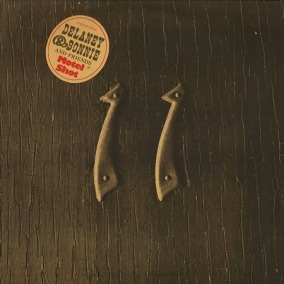
Motel Shot is the fourth studio album by Delaney & Bonnie and Friends, released in 1971. The album, their third for Atco/Atlantic and fifth overall, is a mostly acoustic set. The album's title refers to the impromptu, sometimes late-night, jam sessions pursued by touring musicians when on the road.

Dream Café is an album by American folk singer/guitarist Greg Brown, released in 1992.

Slant 6 Mind is the title of the fourteenth principal album release by American folk singer/guitarist Greg Brown, released in 1997.
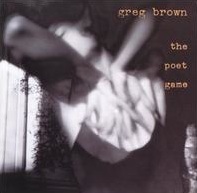
The Poet Game is an album by American folk singer/guitarist Greg Brown, released in 1994.
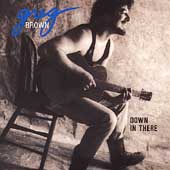
Down in There is an album by American folk singer/guitarist Greg Brown, released in 1990.
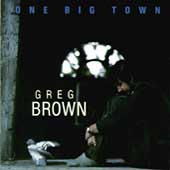
One Big Town is an album by American folk singer/guitarist Greg Brown, released in 1989.

Over and Under is an album by folk singer/guitarist Greg Brown, released in 2000 on the Trailer Records label, a brief departure from his normal Red House Records label.

Covenant is an album by American folk singer/guitarist Greg Brown, released in 2000. It was released only a few months after Over and Under.

If I Had Known: Essential Recordings, 1980–96 is a two-disc retrospective of music recorded by American folk singer/guitarist Greg Brown.
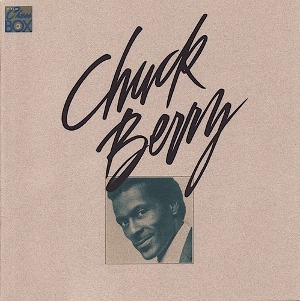
The Chess Box is a compact disc box set compilation by Chuck Berry. It is one in a series of box sets issued by MCA/Chess in the late 1980s. The Chuck Berry set is the most prominent of these, having won a Grammy Award for Best Historical Album in 1989. Berry's Chess Box was reissued on vinyl in 1990.

Stereo Concert is the Kingston Trio's second live album, released in 1959. It was never released in monaural—unusual for a record release in 1959.
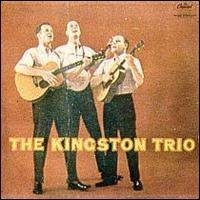
The Kingston Trio is the Kingston Trio's debut album, released in 1958. It entered the album charts in late October 1958, where it resided for nearly four years, spending one week at #1 in early 1959. It was awarded an RIAA gold album on January 19, 1961.
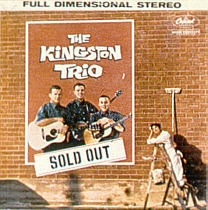
Sold Out is an album by American folk music group the Kingston Trio, released in 1960. It was their third LP to reach #1, stayed there for twelve weeks, and received an RIAA gold certification the same year. "El Matador" b/w "Home From the Hill" was its lead-off single, though it just made the Top 40. Sold Out remained in the Top 40 for 54 weeks, longer than any other Trio album.
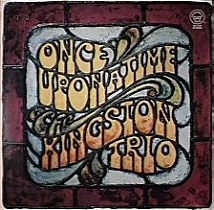
Once Upon a Time is a live album by the American folk music group the Kingston Trio, recorded in 1966 and released in 1969. It was originally released as a double-LP with a three-page booklet and reached number 163 on the Billboard Pop Albums chart. The lead-off single was "One Too Many Mornings" b/w "Scotch and Soda".
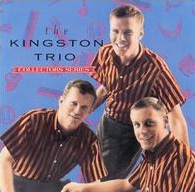
Capitol Collectors Series is a compilation album of the American folk music group the Kingston Trio's recordings from their time with the Capitol Records label. It contains songs from both the Dave Guard and John Stewart trios. All the songs included were released as singles by the group with two having never appeared on any of their principal recordings.

An Evening with The Kingston Trio is a live album by the American folk music group the Kingston Trio, recorded in 1962 and released in 1994. At the time of the performance, the group consisted of Bob Shane, Nick Reynolds, and John Stewart.

Twice Upon a Time is a live album by the American folk music group The Kingston Trio, recorded in 1966 and released in 2008.

Aspen Gold is an album by the American folk music group the Kingston Trio, released in 1979. The group consisted of the line up of Bob Shane, George Grove, and Roger Gambill.

The Roots of My Raising is the 21st studio album by American country singer Merle Haggard and The Strangers, released in 1976. It was his third release in 1976 and his last on the Capitol label until his return in 2004. It reached number 8 on the Billboard country albums chart.
Dave Moore is a folksinger, songwriter, and multi-instrumentalist who lives in Iowa City, IA. He is accomplished on the guitar, harmonica, button accordion, pan pipes, and more. He performed regularly on A Prairie Home Companion between 1986 and 2014. His ninth album, Breaking Down to 3, was the subject of an interview-feature on NPR’s All Things Considered,. In 1985, he won a National Endowment for the Arts grant to study Conjunto accordion with Fred Zimmerle in Texas; he had previously "spent the bulk of the '70s traveling through Latin America and the American South and West, soaking in a wide range of musical influences along the way," and studying with folk musicians in San Cristobal de las Casas and Chiapas.



















